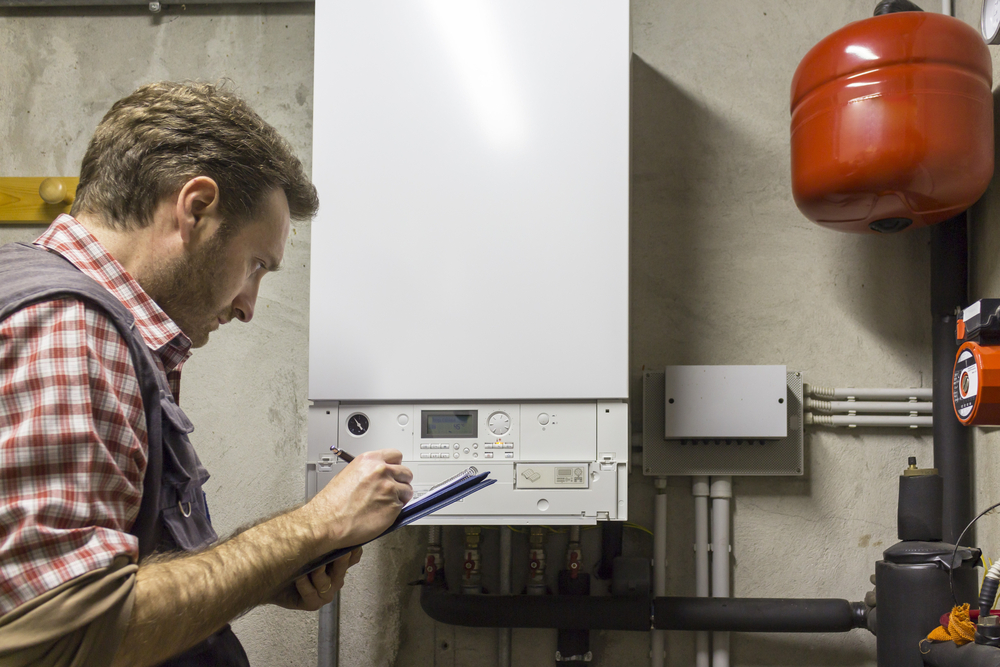As winter approaches, it’s time for us to make sure that we can rely on our boilers to keep us nice and warm in our homes. With the help of this guide, you’ll be able to make sure that your boiler is ready for winter by following these tips:
1. Get Your Boiler Serviced Every Year (Annual Services)
If you want to have a reliable, working boiler that doesn’t break down during the winter, then it’s important to get it serviced at least once or twice every year.
Getting your boiler serviced by gas-safe engineers every year can help you save money from being spent on costly repairs because lesser energy will be wasted.
One of the biggest benefits that this has to offer is that it helps keep your family safe by reducing the risks of your boiler having leaks, releasing harmful gases, and creating fires.
2. Gas Safety Checks
You may not know it, but it’s quite common among boilers to have gas leaks. Therefore, you must have a gas safety check performed on your boiler and get a gas safety certificate that guarantees that your boiler is safe to use in the winter.
In some countries, it’s considered part of the law to have a gas safety check performed on your boiler and other gas appliances. If you refuse to do that, then you have to pay fines that could leave a dent in your pocket.
3. Bleed The Radiators
If you notice that the radiators of your boiler are hot from the bottom and cold from the top, then that means that there is air trapped inside them. This can cause your boiler to take more time and energy to heat your home and also increase your energy bills.
This is where the process of bleeding the radiators comes in. Before you start anything, the first thing that you must do is turn the heating off. If you leave it on, then it may be too hot for you to touch the radiators, and you could also get sprayed on with hot water from the radiators.
The next step is to push your radiator key into the valve located at the top of the radiator. When you turn the key anti-clockwise, you’ll start to hear a hissing noise which means that the trapped air is being discharged.
Once the hissing dies down, then you can quickly tighten the valve and clean off the excess water with a cloth or towel. After that, you can turn your heating back on.
4. Check the Pressure of Your Boiler
Sometimes there can be a drop in the pressure of your boiler. There can only be 2 reasons as to why it happened, they are:
- Bleeding Radiators
When you bleed the radiators of your boiler, the trapped air is being released, which causes the pressure of the boiler to drop.
- Leaks
The pressure of your boiler can also drop because of a leak. This leak may be very small, but it can still cause a steady drop in the pressure. So, check for wet spots all around your boiler, pipes, and radiators.
Don’t check for leaks inside your boiler yourself; instead, call for a gas safe registered engineer to check the inside of your boiler.
How do we check the pressure of a boiler? If you look at the front side of the boiler, you’ll notice that there’s a water pressure dial. The red sections on this dial represent the high and low pressure. The ideal pressure of the boiler is between 1.0 and 2.0 bars.
If the pressure of the boiler is less than 1 bar, then it means that the boiler lost some water which needs to be restored. This can be done with the help of a process called ‘filling loop.’ If the pressure of the boiler is more than 2.57 bars, then it means that you need to bleed the radiators to bring some of the pressure down.
5. Pipes Insulation
During the winter season, the boiler’s pipes tend to freeze up and burst due to being exposed to cold air. To help unfreeze them, some people would pour hot water over the pipes. This is wrong because it will cause more damage to the pipes than help them.
To avoid your pipes from freezing up and bursting, you should insulate your pipes with temperature-resistant and flame retardant materials. With the help of these materials, your boiler will be able to create heat more easily. It’s also been recommended that you insulate the boiler pipes before the winter season comes.
Boiler pipes insulation also helps you save money. This is because the boiler takes more time and energy to function properly and heat your home as the pipes are left exposed to the cold. So, when you insulate them, your energy costs immediately decrease.
6. Install Carbon Monoxide Alarm
There have been many incidents where residents wouldn’t know that their boilers are leaking carbon monoxide, resulting in carbon monoxide poisoning.
This is why you must have carbon monoxide alarms installed in your homes, preferably in a room near the boiler. By doing this, if your boiler is leaking carbon monoxide, then your alarm will be able to detect it and alert you quickly because it will be closer to the boiler.
Takeaway
Who doesn’t want their home to be cozy during the winter season? A boiler that has been neglected for servicing and maintenance can increase energy bills and even lead to ineffective heating.
To prevent such circumstances, get your boiler examined and serviced by a licensed gas engineer every year for the prevention of gas leak incidents.
Check boiler radiators regularly that they are hot at the bottom and top. Otherwise, bleed your regulators for the removal of trapped air. Monitor boiler pressure and make sure that it stays within the normal range.
Remember to insulate your boiler’s pipes for the prevention of freezing and bursting due to cold air exposure. By following the above-mentioned tips, your boiler will be all set for winter.


